Will May’s Brexit plan mean a faster China-UK FTA?
2017-01-19 17:22 GMT+8
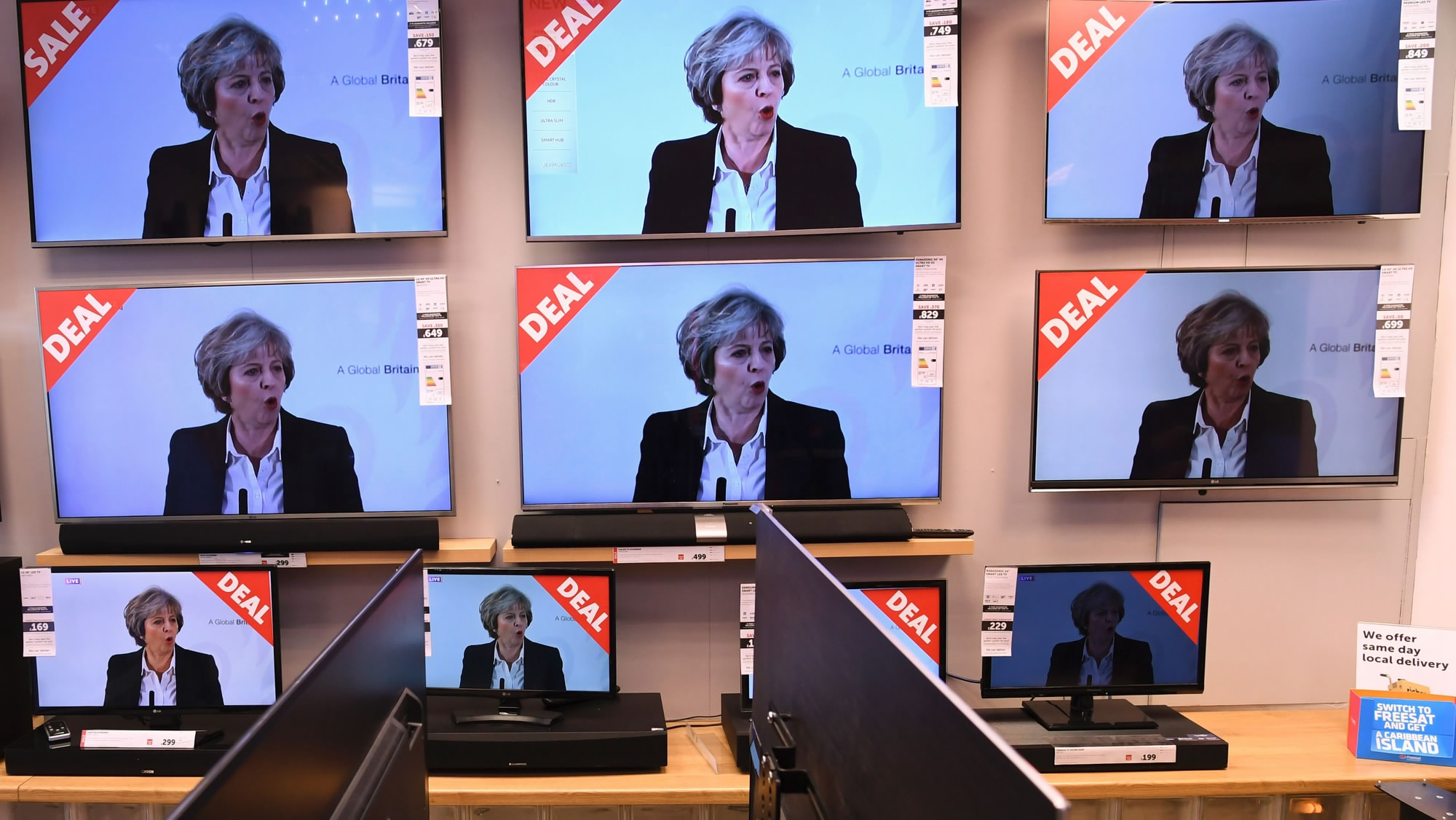
Editor
John Goodrich
British Prime Minister Theresa May has made her clearest statement yet about the terms by which she intends to guide her country out of the European Union, attempting to address criticisms that her government lacked a negotiating strategy for Brexit and a vision for Britain outside the EU bloc.

British Prime Minister Theresa May delivers a speech on the government's plans for Brexit at Lancaster House in London on January 17, 2017. /CFP Photo
On the day that Chinese President Xi Jinping urged the world to reject protectionism, embrace free trade and a new form of economic globalization at the World Economic Forum in Davos, May declared that Britain:
- - Will leave the EU single market, the mechanism which allows free movement of goods, workers, services and capital around the bloc with a population of 500 million. It will seek a "new comprehensive, bold and ambitious comprehensive free trade agreement (FTA)" with the EU.
- Will leave the EU customs union, the arrangement which guarantees no tariffs for members but insists on common tariffs for external trade. May says leaving the customs union will allow Britain to strike trade deals with other countries.
- Will take total control over immigration policy, meaning a new immigration
system for EU nationals and potentially changes to the existing international visa
system.
Post-Brexit Britain must strike new free trade agreements with the EU and beyond, while maintaining inward investment and retaining its appeal as a tourist destination. And amid the uncertainties, what does May’s Brexit plan mean for China?
China and Britain, post-Brexit

CFP Photo
China-UK relations grew steadily while David Cameron and George Osborne were in office, but following the Brexit vote, the prime minister and finance minister – both of whom were strong proponents of EU membership and closer ties with China – departed and the so-called “golden era” entered a new phase.
Relations between the new prime minister and China got off to a rocky start, when she ordered a pause to the high profile Hinckley Point nuclear plant – an 18 billion British pound project dependent on Chinese funding. But May made a concerted effort to build relations in November 2016 when she pledged up to 40 million British pounds to the Asian Infrastructure Investment Bank.
"I'm determined that as we leave the European Union, we build a truly global Britain that is open for business. As we take the next step in this golden era of relations between the UK and China, I am excited about the opportunities for expanding trade and investment between our two countries."
British Prime Minister Theresa May, November 9, 2016
China-UK FTA deal?
Exiting the customs union certainly eases the path to a China-UK FTA.
“We want to get out into the wider world, to trade and do business all around the globe. Countries including China, Brazil, and the Gulf States have already expressed their interest in striking trade deals with us,” May stated on Tuesday.
The UK and China in November announced plans to “establish a trade working group under existing dialogues to enhance our trade discussions.”
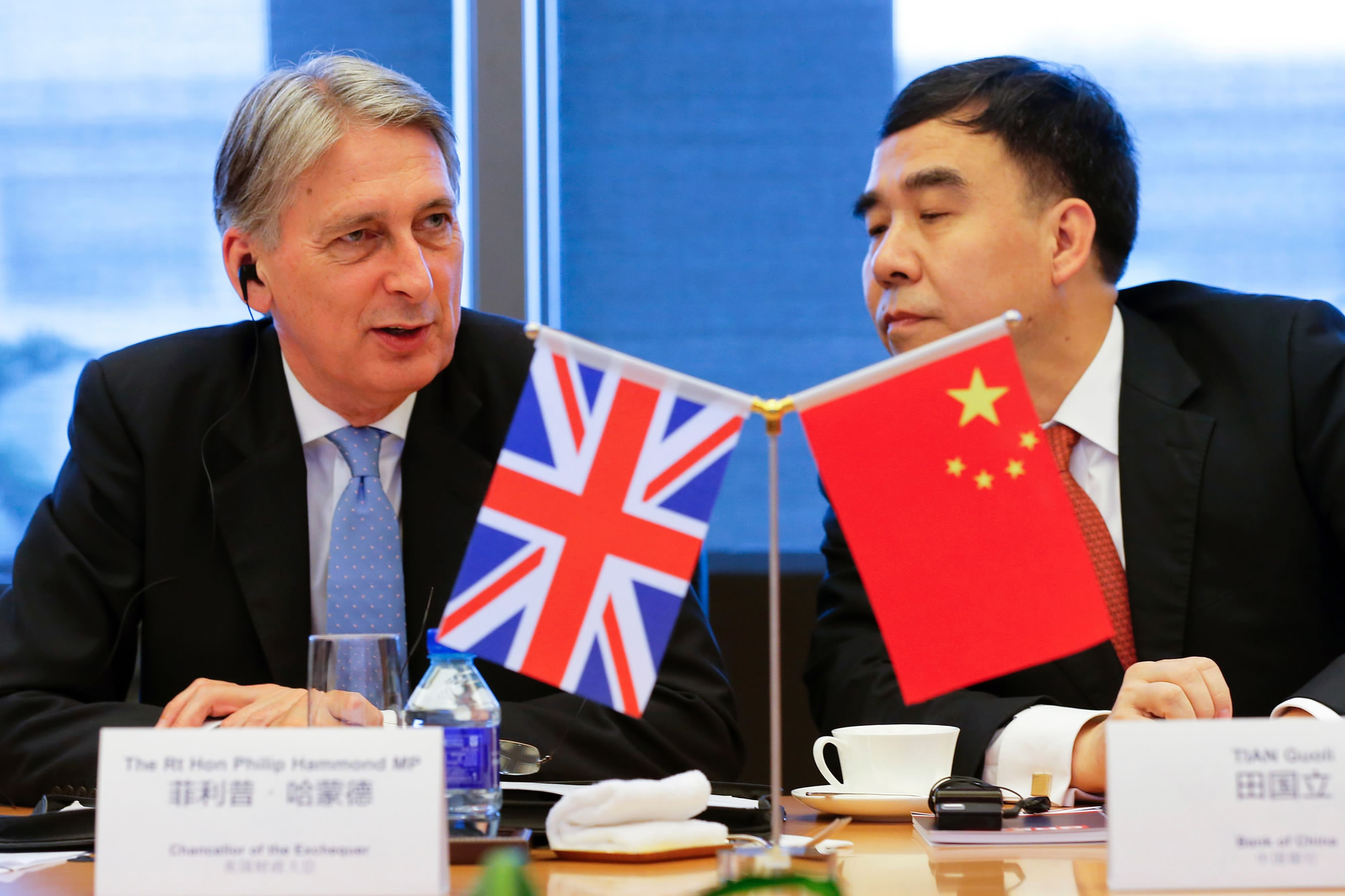
Britain's finance minister Philip Hammond (L) and Bank of China chairman Tian Guoli (R) in Beijing on July 22, 2016. /CFP Photo
British Finance Minister Philip Hammond said that after the Brexit vote he had begun discussions with China on a deal allowing major Chinese banks and businesses more access to the UK economy. Chinese Ministry of Commerce spokesman Shen Danyang said in August 2016 that it “shouldn't take long to complete China-UK FTA talks if both sides want it to be done within a short period.”
“Our stand on the EU is consistent, that we support Europe’s integration. We also value Britain’s place and role, and are willing to continue enhancing mutually beneficial cooperation with the UK.”
Chinese Foreign Ministry spokeswoman Hua Chunying, January 18, 2017
Chinese direct investment to continue?

Foreign exchange traders monitor Theresa May's speech on January 17, 2017. /CFP Photo
China has continued to invest in Britain in the post-Brexit era.
CITIC and Chinese Developer ABP announced in November 2016 that they will together invest 320 million British pounds in a London Royal Albert Docks project, and China’s interest in the Northern Powerhouse scheme continues.
Britain has been regarded as a safe haven for investment in recent years and May’s speech has quelled some uncertainty. Her plans to leave the single market have alarmed some in the business community, but the depreciated British pound is appealing to foreign investors.
The Sterling fell further ahead of May’s Tuesday speech, but rebounded in the hours after it. It remains at a low level, however, and the substance of her speech won’t change that.
London’s finance sector a gateway?
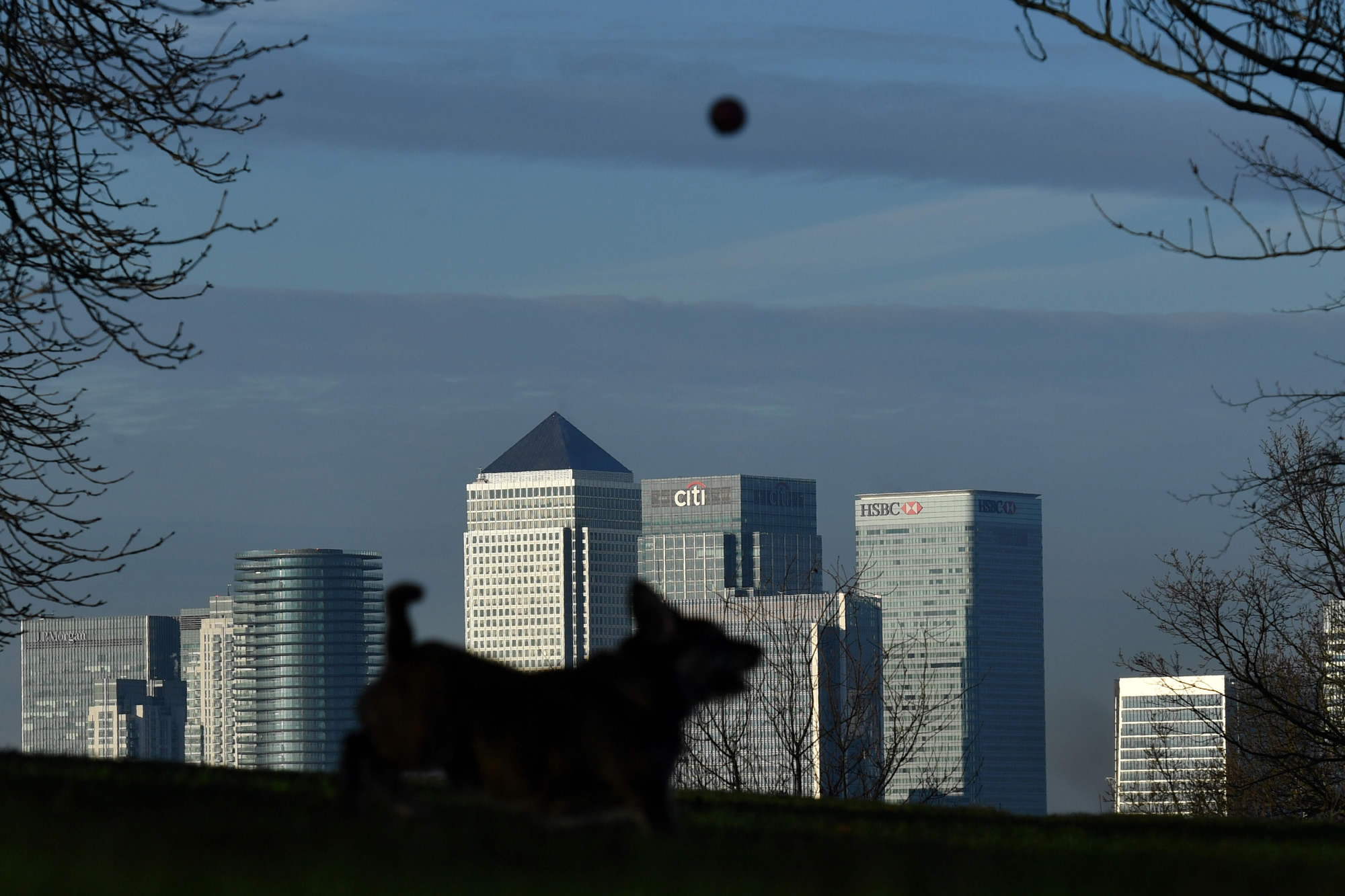
London's financial district, Canary Wharf, London on January 17, 2017. /CFP Photo
The City of London has acted as a gateway to Europe for Chinese investors and financial institutions to the rest of the EU.
The decision to leave the single market puts London’s gateway status in jeopardy, and the ability of the government to strike an agreement that doesn’t disrupt the financial sector is a central part of negotiations.
Britain’s financial sector is dominant, so the country needs a good deal. But financial services firms are concerned. HSBC and UBS banks have both said this week that they will each move 1,000 jobs out of London.
Changes to visa system?
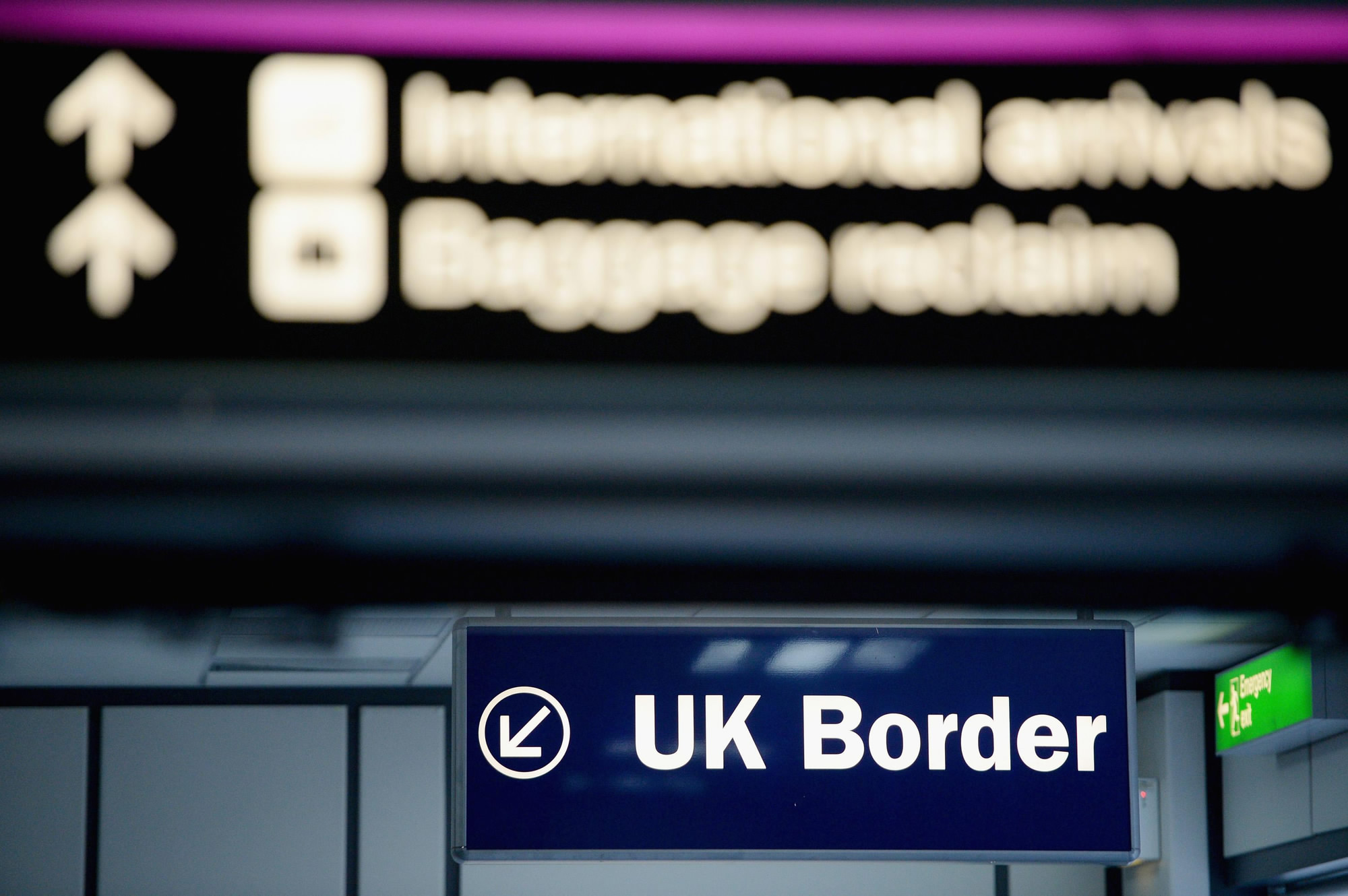
CFP Photo
May took a hard line on visas in her previous role as home secretary. Immigration was a significant underlying factor in the Brexit vote, and controlling inflows from the EU is the immediate challenge for the government.
But it is yet to be determined how a new visa system will work, and whether it will be specific to the EU or also result in an overhaul for all countries.
The number of Chinese students in the UK far exceeded any other nationality, at 91,215, in 2015-16, according to UK Council for International Student Affairs.
In her speech, May pledged “international talent must remain one of this country’s most distinctive assets.”
Tourism and shopping boom
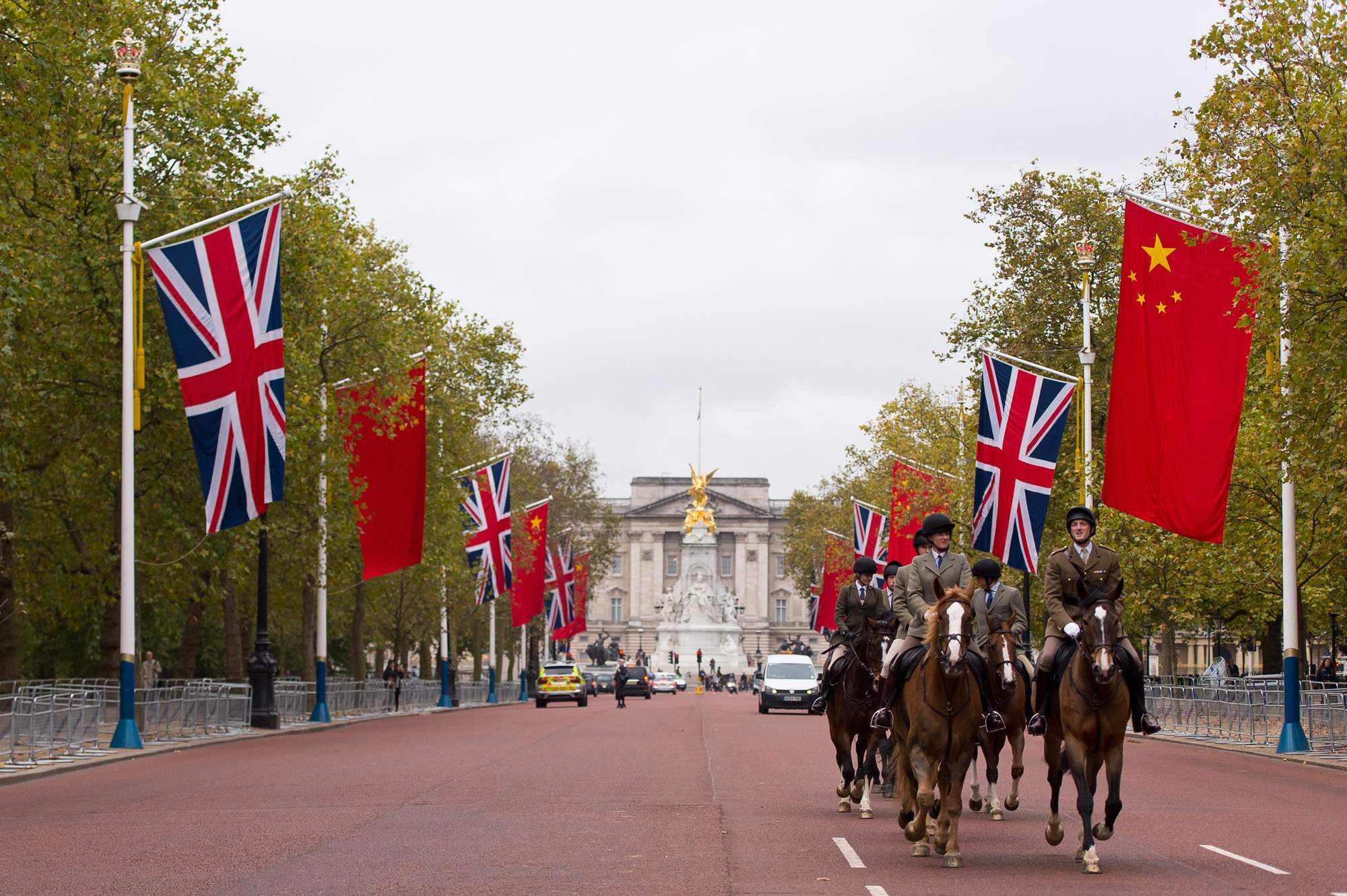
The British and Chinese flags in front of Buckingham Palace, ahead of the Chinese State Visit on October 19, 2015. /CFP Photo
Britain’s reputation as a tourist and shopping hotspot, in the wake of Brexit, has been boosted by the severe depreciation in the pound – making goods for overseas visitors cheaper. The Global Blue Consultants firm says spending by Chinese tourists in October and November 2016 rose by 63 percent, and the UK tourism agency Visit Britain expects the biggest rise in tourist spending in four years in 2017.
The consequences and manner of Britain’s decision to leave the EU are still far from certain. The aims stated by May are just that – an eventual deal has to be agreed by Britain on one side, and individually approved by each of the remaining 27 member states. EU leaders insist the final deal must be less attractive than membership of the bloc.
In addition, German and French elections in 2017 could alter the balance of Europe. If Europe becomes more protectionist and Britain commits further to free trade, the appeal of a fast, mutually-beneficial FTA between the UK and China will surely grow.
Copyright © 2017
